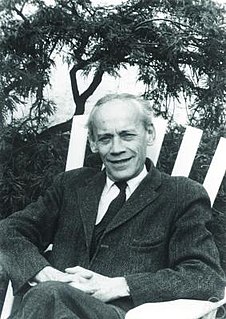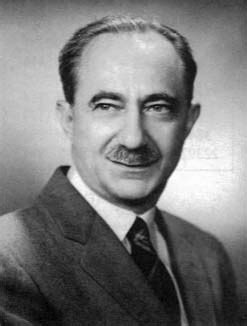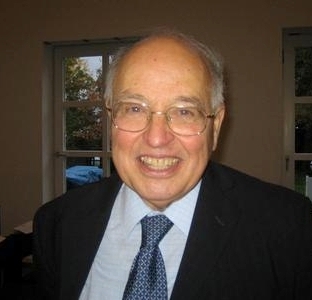A Quote by Emil Artin
It is my experience that proofs involving matrices can be shortened by 50% if one throws the matrices out.
Quote Topics
Related Quotes
Though determinants and matrices received a great deal of attention in the nineteenth century and thousands of papers were written on these subjects, they do not constitute great innovations in mathematics.... Neither determinants nor matrices have influenced deeply the course of mathematics despite their utility as compact expressions and despite the suggestiveness of matrices as concrete groups for the discernment of general theorems of group theory.
It was not until some weeks later that I realized there is no need to restrict oneself to 2 by 2 matrices. One could go on to 4 by 4 matrices, and the problem is then easily soluable. In retrospect, it seems strange that one can be so much held up over such an elementary point. The resulting wave equation for the electron turned out to be very successful. It led to correct values for the spin and the magnetic moment. This was quite unexpected. The work all followed from a study of pretty mathematics, without any thought being given to these physical properties of the electron.
In the absence of any written analogue to speech, the sensible, natural environment remains the primary visual counterpart of spoken utterance, the palpable site, or matrix wherein meaning occurs and proliferates. In the absence of writing, we find ourselves situated in the field of discourse as we are embedded in the natural landscape; indeed, the two matrices are not separable. We can no more stabilize the language and render its meanings determinate than we can freeze all motion and metamorphosis within the land.
Essentially, there's a universe inside your brain. The number of connections possible inside your brain is limitless. And as people have learned to have more managerial and direct creative access to their brains, they have also developed matrices or networks of people that communicate electronically. There are direct brain/computer link-ups. You can just jack yourself in and pilot your brain around in cyberspace-electronic space.
I was appalled to find that the mathematical notation on which I had been raised failed to fill the needs of the courses I was assigned, and I began work on extensions to notation that might serve. In particular, I adopted the matrix algebra used in my thesis work, the systematic use of matrices and higher-dimensional arrays (almost) learned in a course in Tensor Analysis rashly taken in my third year at Queen's, and (eventually) the notion of Operators in the sense introduced by Heaviside in his treatment of Maxwell's equations.
I think it is said that Gauss had ten different proofs for the law of quadratic reciprocity. Any good theorem should have several proofs, the more the better. For two reasons: usually, different proofs have different strengths and weaknesses, and they generalise in different directions - they are not just repetitions of each other.







































